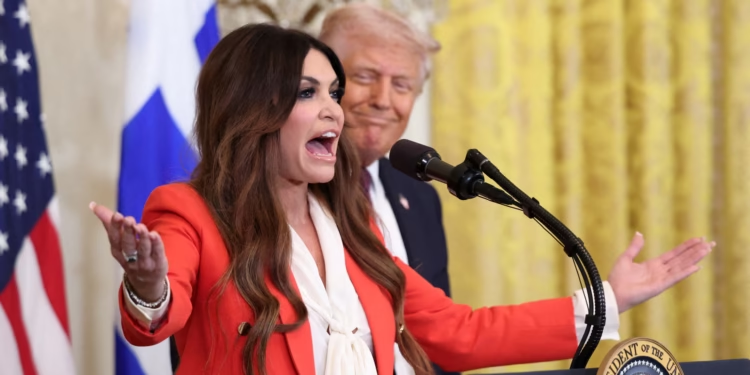The logjam in Washington finally broke this week as Senate Republicans used new rules to push through a wave of President Donald Trump’s nominees. In a 51-47 vote, the Senate confirmed 48 appointments in one stroke, ending months of procedural gridlock that Democrats had used to stall even lower-level posts. Among those confirmed was Kimberly Guilfoyle, the former California prosecutor and television personality who became a key fundraiser during Trump’s 2020 campaign. She will now serve as U.S. ambassador to Greece.
The move marks a decisive turn in how the Senate handles confirmations. For years, both parties have weaponized the rules to stall opponents’ nominees, consuming precious floor time and paralyzing executive branch staffing. Democrats had taken obstruction to unprecedented levels, forcing separate votes on nearly every nominee—no matter how uncontroversial—leaving vital agencies without confirmed leadership. This week Republicans acted to restore common sense, changing procedure so that non-judicial, lower-level nominees can be confirmed in groups with a simple majority.
“Republicans have fixed a broken process,” Sen. John Thune said before the vote, making clear that the new rules were necessary to get government functioning again. The batch of confirmations included deputy secretaries for Defense, Interior, and Energy—positions critical to national security, infrastructure, and energy policy. All of those nominees had already received bipartisan support in committee, undermining Democrats’ argument that they were too “controversial” to advance.
The most high-profile confirmation was Guilfoyle’s. Beyond her career as a prosecutor and media personality, she’s known as a tireless advocate for conservative causes and a strong communicator. Her appointment to Athens signals the administration’s confidence in her ability to represent American interests abroad while strengthening ties in a strategically important region.
This change to Senate procedure isn’t without precedent. In 2013, Democrats—led by then-Majority Leader Harry Reid—scrapped the 60-vote threshold for executive branch and lower court judicial nominees, despite warnings from Republican leader Mitch McConnell that they would come to regret it. When Republicans gained the majority, they followed through in 2017 by extending the change to Supreme Court nominations, ensuring the confirmation of Justice Neil Gorsuch despite Democratic resistance.
Now the shoe is on the other foot again. Democrats, led by Chuck Schumer, are crying foul, accusing Republicans of “rubber-stamping” Trump’s choices. Schumer warned they would “come to regret” this move, echoing McConnell’s caution to Reid a decade ago. But in reality, Democrats had left Republicans little choice. Their refusal to grant even routine consent for uncontroversial nominees crossed a line of basic governance, turning every appointment into a political hostage.
The broader picture is simple: the American people expect a functioning government. Agencies tasked with defending the country, managing resources, and overseeing infrastructure cannot sit half-staffed because one party wants to score points in the headlines. By forcing a reset, Republicans not only cleared dozens of important posts but also reasserted the Senate’s responsibility to keep the executive branch operational.
Trump himself signaled his frustration earlier this summer when he told Schumer to “GO TO HELL!” on social media after weeks of obstruction. The president had reason to be angry: his administration had been hamstrung by hundreds of pending nominees, a level of delay unseen in modern history. By acting, Senate Republicans ensured the executive branch can now catch up to the pace set by past administrations.
“There will be more to come,” Thune promised Thursday. Indeed, more than 100 nominations remain, and Republicans are prepared to move them in additional groups in the weeks ahead. The result will be an administration filled at a pace that looks far more like Trump’s predecessors than the slow-motion sabotage of the last year.
For conservatives, the takeaway is clear: Republicans finally stopped playing by the old rules that Democrats had already broken. They chose to govern. And with figures like Kimberly Guilfoyle now stepping into prominent roles, Trump’s administration is getting the team it needs to carry out its agenda at home and abroad.




















